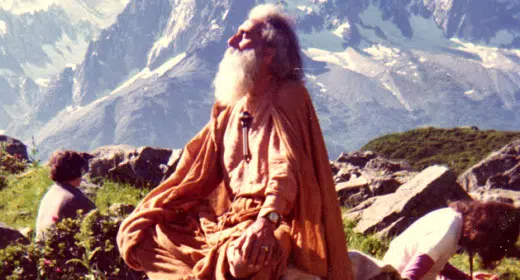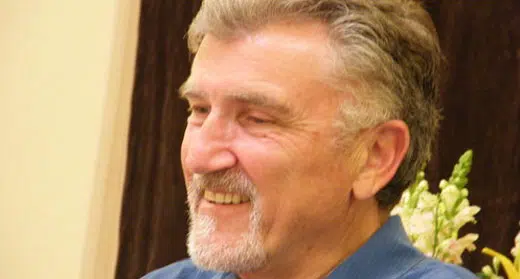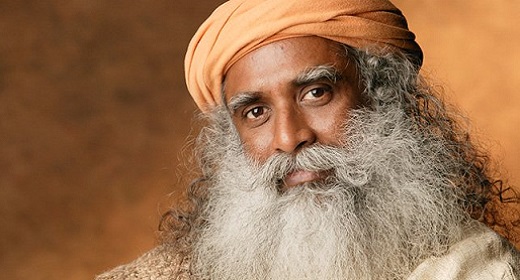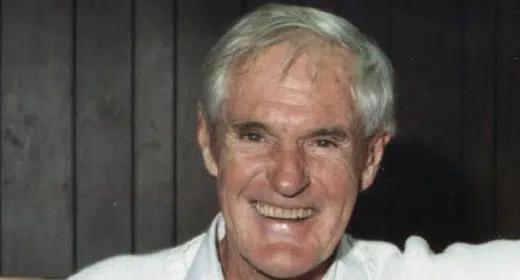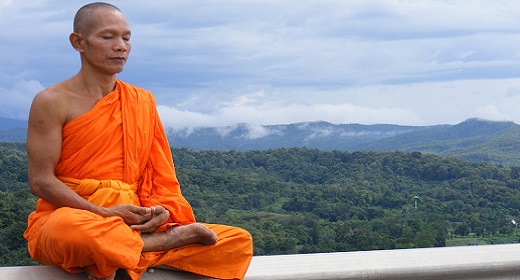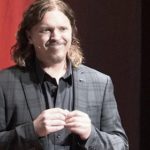Awaken: Firstly, I want to thank you for spending this time with us. I appreciate you sharing your wisdom and ideas about the therapeutic and transformative potential of psychedelics
with our awakened readers. Tell me how you started down this path to awakening, by way of hallucinogenics…
Timothy Leary PhD: Many years ago, on a sunny afternoon in the garden of a Cuernavaca villa, I ate seven of the so-called sacred mushrooms which had been given to me by a scientist from the University of Mexico. During the next five hours, I was whirled through an experience which could be described in many extravagant metaphors but which was, above all and without question, the deepest religious experience of my life.
Awaken: I want to explore the fact that you describe this event as a “religious experience…” But first, you have famously coined the term “turning on”… does this experience capture the sense of what you mean by that?
Timothy Leary: The discovery that the human brain possesses an infinity of potentialities and can operate at unexpected space-time dimensions left me feeling exhilarated, awed, and quite convinced that I had awakened from a long ontological sleep. This sudden flash awakening is called “turning on.”
Awaken: So, it is the human brain that confers the experience we may call awakening? And did this experience leave you greatly altered, beyond the initial turning on event?
Timothy Leary: A profound transcendent experience should leave in its wake a changed man and a changed life. Since my illumination of August 1960, I have devoted most of my energies to trying to understand the revelatory potentialities of the human nervous system and to making these insights available to others.
Awaken: By “transcendent” are you explicitly referring to what we mentioned above, as a spiritual, or religious experience? In other words, to be clear, especially for anyone who may not be familiar with your work, are you saying that the psychedelic experience may be religious or “mystical”?
Timothy Leary: I have repeated this biochemical and (to me) sacramental ritual several hundred times, and almost every time I have been awed by religious revelations as shattering as the first experience.
In our centers at Harvard, in Mexico, and at Millbrook we have arranged transcendent experiences for several thousand persons from all walks of life, including more than 200 full-time religious professionals, about half of whom profess the Christian or Jewish faiths and about half of whom belong to Eastern religions… it is conservative to state that over 75 percent of these subjects report intense mystico-religious responses, and considerably more than 50 percent claim that they have had the deepest spiritual experience of their life.
Our studies, naturalistic and experimental, thus demonstrate that if the expectation, preparation, and setting are spiritual, an intense mystical or revelatory experience can be expected in from 40 to 90 percent of subjects ingesting psychedelic drugs.
Awaken: Ahh… so it has everything to do with the context, setting and intentions going into the event. Aside from this, what exactly makes an experience spiritual or religious?
Timothy Leary: May I offer a definition? The religious experience is the ecstatic, incontrovertibly certain, subjective discovery of answers to seven basic spiritual questions.
Awaken: Can we go over these 7 spiritual questions?
Timothy Leary:
- The Ultimate Power Question: What is the basic energy underlying the universe – the ultimate power that moves the galaxies and nucleus of the atom? Where and how did it all begin? What is the cosmic plan? Cosmology.
- The Life Question: What is life? Where and how did it begin? How is it evolving? Where is it going?
- The Human Being Question: Who is man? Whence did he come? What is his structure and function?
- The Awareness Question: How does man sense, experience, know?
- The Ego Question: Who am I? What is my spiritual, psychological, social place in the plan?
- The Emotional Question: What should I feel about it?
- The Ultimate Escape Question: How do I get out of it?
Awaken: I would still like to further explore this idea of the “religious experience,” since I’ve noticed that you continue to use this language freely… What strikes me about it, is your background as a researcher and as an academic, as there is often a distaste for this sort of language in the scientific community. Did you always refer to the experience as “religious?”
Timothy Leary: In 1966, the Harvard Millbrook psychedelic researchers decided to exploit the religious metaphor in order to encourage people to take charge of their own brain functions. I was uneasy about falling back on the religious paradigm. For 40 years I had been conditioned to respond negatively to the word “God.” Any time someone started shouting about God, I automatically expected to be conned or threatened by some semiliterate hypocrite.
We tried to avoid this insidious buzzword. God knows, at one point we talked about LSD as a “brain vitamin” or dietary supplement but this more accurate label sounded dodgy in those days… who knows, perhaps it would fly today in this age of mega-supplements, smart drugs and life-extension. However, self-control of one’s diet was not to become respectable until the holistic medicine of the 1970s.
Awaken: So, this God language did make you queasy at first! But this is where science meets the realm of the mystical, so perhaps there really is no adequate terminology. Anyway, it sounds like you tried to couch your discoveries in scientific terms, at first…
Timothy Leary: Our logic seemed clear—brain-activating drugs expose people to powerful, mind-blowing experiences that shatter conventional ideas about reality.
Awaken: But, something didn’t fly with this approach?
Timothy Leary: Wisely or foolishly, we got scared off this scientific approach. After being expelled from Harvard, Mexico, Antigua, and Dominica in the late Spring of 1963, we cravenly decided that the authorities were not ready for the 21st Century concept—Every Citizen a Scientist. So we fell back to the familiar historical turf upon which most earlier freedom movements had fought the battle—religion.
Awaken: So, to be absolutely clear… you used the language of religion to catalog and discuss your findings with psychedelics because there was, ironically, more freedom in the realm of religion, than in science? Wow!
Timothy Leary: Though it might be against the law for responsible American citizens to use psychoactive plants and drugs to change their brains, surely 400 years of Western civilization must support the right of Americans to worship the divinity within, using sacraments that worked for them.
Our political experiences at Harvard also pushed us in the direction of the religious metaphor. When it became known on campus that a group of psychologists was producing revelatory brain-change, we expected that astronomers and biologists would come flocking around to learn how to use this new tool for expanding awareness. But the scientists, committed to external manipulations, were uninterested. Instead we were flooded by inquiries from the Divinity School.
Awaken: Ahh, so it was a wink-wink, we’re using sacraments… But, it’s surprising to me, given the commitment within science to explore and grow… Nonetheless, the point is, it was quite challenging to garner support within your own community?
Timothy Leary: Our problem—typical of time-travel agents dealing with primitive cultures was that a dramatic change in neurology must be gently introduced in the language a culture traditionally uses for those “mysterious, un-known, higher powers” which its science has not yet explained. A review of 20th Century literature showed that there was obviously a strong taboo against “brain-change.” By 1960, indeed, the brain had replaced the genitals as the forbidden organ that must not be touched or turned on by the owner. The only way in which consciousness change experiences could be discussed was in terms of philosophic-religious. Even Buddhism, an atheist method of psychological self-control, allowed itself to be classified as a religion.
Awaken: So, religion it was!
Timothy Leary: So religion it was. I recall the moment of decision—During a wild, all night LSD session in our mansion in the Boston suburbs, Richard Alpert came up to me, eyes popping, and announced, “The East! We must go back to the wisdom of the East!” Go back?
The lawyers agreed.
There is apparently nothing in the Bill of Rights to protect scientific freedom. The Constitution was written in a horse-and-buggy pre-technological era. But there was a First Amendment protection of Freedom of Religion. After all, Catholic priests were allowed Communion wine during Prohibition. So I agreed to the religious posture with conditions. There was to be no kneeling down, no dogmas, no holy men, no followers, no churches, no public worship, no financial offerings…
Awaken: How unfortunate that even today, we have to tiptoe around, and use language in delicate ways, for the purpose of legitimizing substances that have real therapeutic value. Even with regard to medical marijuana, there is still a taboo! But, let’s back up just a bit. Perhaps this is another example of the prevalent irrationality in our culture, that you have often criticized? Something you write about is the way we have glorified irrational and overly emotional behavior…
Timothy Leary: Personal emotions are poetically considered to be a diagnostic symptom of humanity. Mr. Spock, of Star Trek is “alien” because he does not break down in irrational outbursts, fits of temper, or sentiment. If, now and then a tiny little tear of self-pity would appear in Spock’s eye we would consider him one-of-us. To be human is, for many psychologists, to be honestly irrational. One shows one’s “real nature” when some unpleasant feeling is revealed.
This romantic view of human nature is clearly Mediterranean. Now that our species is ready to send advanced probes into space it is a matter of amusement that our species-identity is influenced by a bunch of semi-illiterate Bronze-Age Greeks… Saint Augustine was a fanatic, superstitious… Aristotle was an Athenian living in a barbarous era when treachery, ignorance, fanaticism were endemic. Old Testament drama, vulgarized by Italian opera and homogenized in our modem prime-time soap opera, has insidiously glorified emotions mammalian, male-macho meanness, and self-pity. Even today this humorless, jumpy fanaticism arises from the Mediterranean basin like an adrenaline smog.
Awaken: I think that what you are saying about the destructive nature of the over-emotional human may be easily misunderstood, since we are so often encouraged to sit with our emotions and accept them as natural.
Timothy Leary: Emotions are emergency alarms. The organism at the point of death threat or territorial invasion goes into a paroxysm of frantic activity, like a fish out of water, like a cornered animal…
It is also part of survival wisdom to check out, dry-run, our animal emotional repertoire. Flick through the paranoia dials regularly. What would I do if an armed robber stole into the house at midnight? What would I do if jumped by some hoods in the parking lot?
Like all our divinities, the pre-social, wily animal god of emotion-locomotion resides within our nervous system, ready to pour out flight-fight endocrine juices. Politicians and priests deliberately play on our fears and exaggerate our dangers for their own profit. This is the National Security ploy. The intelligent human being has learned to turn-on-and-off the emotions, the way you navigate the other circuits in your brain.
The sensible animal avoids situations that elicit fear. Your wise animal prefers to lay back relaxed, using his senses, tuned into his delicious body-organ music, closing his eyes to drift back in cellular memory. Dogs and cats are high—alertly cool, all the time except when bad luck demands emotional measures.
The great kick of the mystic experience is the sudden relief from emotional pressure.
Awaken: You said earlier that the mystic experience is generated by the brain. How exactly does the mechanism work?
Timothy Leary: There are 70 receptor sites in the brain that have evolved over millions of years. Receptor sites are the little lock that is opened by a certain neurotransmitter, and any drug that works… changes your mood or your consciousness… can do that because it’s opening up the receptor sites. So, you’re hitting buttons in your brain computer, that open up new directories…
Awaken: But for the sake of being absolutely explicit, your work does not focus on just any drug, but solely on psychedelic plants?
Timothy Leary: So… you have cocaine, nicotine, caffeine, sugar… there’s a wide variety of plant products that affect the brain, and I’ve always been interested in, and done a lot of research on, and done a lot of writing, about so-called psychedelic drugs, psychedelic plants, which have been used for thousands of years by shaman… like mescaline, Peyote… LSD itself, comes from an ergot of rye.
What we’re told is that the human being evolved in which our brains have a symbiotic relationship with certain of these botanicals or plants, just like your body needs certain carbohydrates and chemicals to keep going. These psychedelic plants—and I’m not talking about booze or cocaine. Psychedelic plants were used during a period of evolution… pre-Christian, pre-Muslim, pre-monotheistic… Now, the monotheistic religions are male oriented, militaristic and they are authoritarian. Before monotheistic religions, pagan religions worshiped life, they worshiped nature… they were in a tribal situation… and in that context, psychedelic plants were used.
Awaken: I want to go back to the importance of context… You stress that the first few experiences with psychedelics should be under the guidance of an experienced therapist?
Timothy Leary: Absolutely, and it should be used with great awe and prudence, and it should be used for noble goals to discover yourself and to have better communion with other people, to improve your life. That was the goal.
Awaken: And yet, even with these prudent measures in place, you have received criticism and have been the scapegoat, anytime anyone uses the drugs in a reckless way…
Timothy Leary: As the LA Times pointed out, the dangers and the abuses of LSD have been tremendously inflated. Marijuana, LSD, and psychedelic plants are the most benign, the least dangerous. But it’s been demonized.
What authoritarian people do—particularly moralists—they ignore something like LSD, and then when it comes along, and you can’t ignore it, they trivialize it… “It’s nothing.” And then when they can’t do that, they demonize it.
I don’t accept that the government should be able to tell us what we can do with our nervous system and with our body. Same thing with censorship of movies and books. I’m totally against government or religious interference. Mind your own business stay out of my business!
Awaken: Why have these authoritarian structures prevailed?
Timothy Leary: Most post-pagan, organized, civilized religions have been inspired by God the Moralist Dictator, who invariably proscribed, under the pain of eternal punishment, the pleasures of sensuality, eroticism, individual as opposed to priesthood luxury and free art. These taboos are comprehensible because a citizenry that pursues pleasure will tend to pay less attention to domestication roles and the self-sacrifices that benefit society.
Centralized monotheisms understandably denounced paganism. The looseness of the nature worshipper had to be tightened up to maintain an urban, post tribal society. The Eastern and Mid-eastern empires reserved luxury, art, sensuality to the aristocracy.
Awaken: This is an interesting aside… So, this old authoritarian religious structure mirrors the way the people saw God! But this way of seeing God has shifted through the ages, hasn’t it? Especially during hedonistic periods?
Timothy Leary: The concept of God the Hedonist emerged in Greece, in the centuries before Christ. Here the wonderful notions of individuality and democracy first blossomed.
The idea of beauty, the adoration of the human body… its grooming, nurture, play, display, and its harmony with esthetic environments has lasted through the hegemonies of Alexander, Rome, Catholicism… flared up magnificently in the Renaissance, rode the wave of Protestantism, and appeared in the 20th Century in the form of the Bohemian, the artist, the entertainer, the designer, the playboy-playgirl.
Awaken: Isn’t there more tolerance for the unconventional, in eastern cultures? For example, in my area of Kundalini Yoga, the body is seen as a sacred vessel. And those practices that explore movement, breath, and working with the nervous system, and even sexuality as a means of awakening, have always existed, even if only within certain pockets of society.
Timothy Leary: Some religions have fitfully allowed cults that focus on somatic energy and sacred sensuality. Tantra, both Bengali and Tibetan, Zen, Hasidic Juda- ism preserved the notions of kundalini, cakra consciousness, spiritual eroticism, ecstatic exuberance , mystic altered states. But Hedonism has always been easily checked by centralized religious states and restricted to a specialized caste of artists usually patronized and tolerated by the rulers.
This worked out well. The masters needed the hedonic estheticians to entertain and beautify while the great mass of the citizenry was kept in submissive asceticism. The lowest classes and the outside minorities were usually allowed to indulge themselves in gross sensuality, sternly condemned by bourgeois moralists.
Awaken: Why did the idea of bodily exploration explode here in the west, in the 20th century?
Timothy Leary: In the 20th Century, the concept of selfhood suddenly became popularized and vulgarized. Two world wars moved people around, lessening the hold of parochial moral censors. Psychoanalysis introduced the notion of self- improvement. The explosion of the film/video culture trained the citizenry to dial and tune the entertainment they wished. The material consumerism mania of the 1950s strengthened the idea that the working person was entitled to choose what looked good… purchasable things, that is.
In the 1960s, the 2,500 year-old tradition of self-discovery and self-indulgence finally blossomed as a mass phenomenon. The widespread use of hedonic drugs led to a resurrection of the body. Sensual consumerism. Sexual liberation, erotic dress, dance, talk, print, film, music. Wholistic health methods. Diet, jogging, trendy style. The working person discovered that his/her own body belonged, not to the state or to the moralist or to the authoritarian doctor, but to her/himself.
The continually expanding use of brain-activating drugs in the 1970s built up the hedonic momentum because of the obvious neurological fact that drugs turn on the body. One of the ecstatic horrors of the LSD experience is the sudden confrontation with your own body.
Awaken: How so?
Timothy Leary: You are catapulted into the matrix of quadrillions of squirming cells and somatic communication systems, swept down the tunnels and canals of your own waterworks. You have visions of microscopic processes, strange, undulating tissue patterns. You are pummeled down the fantastic artistry of internal factories, recoiling with fear or shrieking in pleasure at the incessant push, struggle, drive of the biological machinery at every moment engulfing you.
Awaken: But this is the beginning of awakening… of becoming tuned in to your own body and becoming one with it…
Timothy Leary: Your body is the mirror of the macrocosm, the kingdom of heaven within you. Tibetan and Indian tantras and modern psychology workshops train the student to pay attention to the body’s energies and messages.
Awaken: Yes… and all of this was coming onto the scene throughout the 70s…
Timothy Leary: By 1981, the intelligent American was beginning to define her/his body as a complex receiving station, a sacred communications satellite, a bipedal telescope, a mosaic of touching, sniffing, listening, tasting microphones picking up vibrations from planetary energy systems, a worldwide retinal ABC, an eardrum RCA, an International Smell and Tell, a consolidated General Foods laboratory. God of un-common sense.
Awaken: In the now famous courtroom scene, you describe an acid trip in terms of self-dissolution… saying that every cell in your body began to break down and that you were afraid you would become a puddle on the floor, when you saw a serpent come up and swallow you… and you went into the serpent’s stomach, and were then excreted… And then you joke that although this may seem strange in a psychological setting, to a Hindu, this is a perfectly natural description of a transcendental experience.
Your lifelong friend and colleague, Dr. Richard Alpert (Ram Dass), expressed his incredulity that you could have these types of experiences and still adhere to a physical description of their origins. In other words, that these experiences may all be explained by activity in the brain.
He said, “it’s inconceivable to me that Timothy could have taken as much acid as he has and been through as much as he’s been through and end up a philosophical materialist…”
Timothy Leary: Hallucinations are not mysterious or supernatural. Hallucinations are the nervous system having experiences for which we don’t have words…
Awaken: This materialist position extends to the concept of death, as well… And so, how about the Hindu idea that spirit lives on after the physical body dies…
Timothy Leary: I don’t have that…
Awaken: To stay with this for a moment, you hold that there is nothing beyond the physical body? I was struck when Ram Dass pushed you on exactly this point, asking what you mean then, when you use the word “soul”…
Timothy Leary: Super consciousness… And she hangs around the brain.
Awaken: He countered by referencing the Hindu mystic, Ramana Maharshi, who said that the soul is in the heart…
Timothy Leary: The heart… Ahh the heart… I’ve had to tell a thousand Hindu gurus that the heart is a wonderful organ to pump blood… and they haven’t discovered Harvey‘s theory of circulation. They’re using the heart as a metaphor. It’s a very bad metaphor, I think.
Awaken: He explains that the soul may not be in a physical manifestation, but rather, in a subtle form… and playfully suggests that “perhaps you need a better technology to access it!” All that aside, you still—as a materialist— hold a place for prayer? How is that so?
Timothy Leary: Prayer is ecstatic communication with your inner navigational computer.
Awaken: What do you mean by “navigational computer?” Although you reject the notion of the soul in the metaphysical sense, I have heard you speak in terms of energy… Is this what you mean?
Timothy Leary: All prayers are originally communications with higher, freer energies—turning yourself into the energy dance.
Conventional prayers for the most part, have degenerated into parrot rituals, slogans, mimicked verbalizations, appeals for game help. But, when the ecstatic cry is called for, you must be ready to address higher intelligence, to contact energy beyond your game. You must be ready to pray. When you have lost the need to address the higher intelligence, you are a dead man in a world of dead symbols.
Awaken: But, when you speak of “higher intelligence”—and I have heard you refer to “God”—it starts to sound like the metaphysical jargon that you detest…
Timothy Leary: God is defined in terms of the technologies involved in creating a universe and engineering the obvious stages of evolution. Anyone interested in playing the God game is given suggestions for activating the various levels of intelligence in her/his own brain and DNA and expressing them through the tools of modern science. Any human being who wishes to accept the responsibility is offered the powers traditionally assigned to divinity.
Awaken: With that, I would like to thank you again, Mr. Leary, for your time today, for sharing your insights with our readers, and especially, for all of the dedicated, pioneering work you have done in the area of psychedelic medicine.
This is one of Awaken’s Dream Interviews, conducted by Donna Quesada, and All Answers are Verbatim from Timothy Leary.


